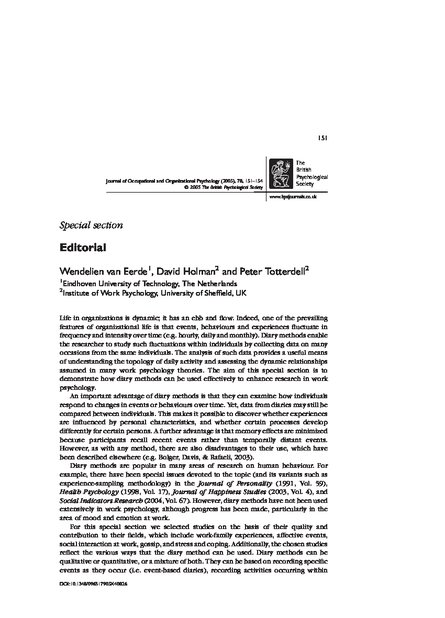
Life in organizations is dynamic; it has an ebb and flow. Indeed, one of the prevailing features of organizational life is that events, behaviours and experiences fluctuate in frequency and intensity over time (e.g. hourly, daily and monthly). Diary methods enable the researcher to study such fluctuations within individuals by collecting data on many occasions from the same individuals. The analysis of such data provides a useful means of understanding the topology of daily activity and assessing the dynamic relationships assumed in many work psychology theories. The aim of this special section is to demonstrate how diary methods can be used effectively to enhance research in work psychology.
